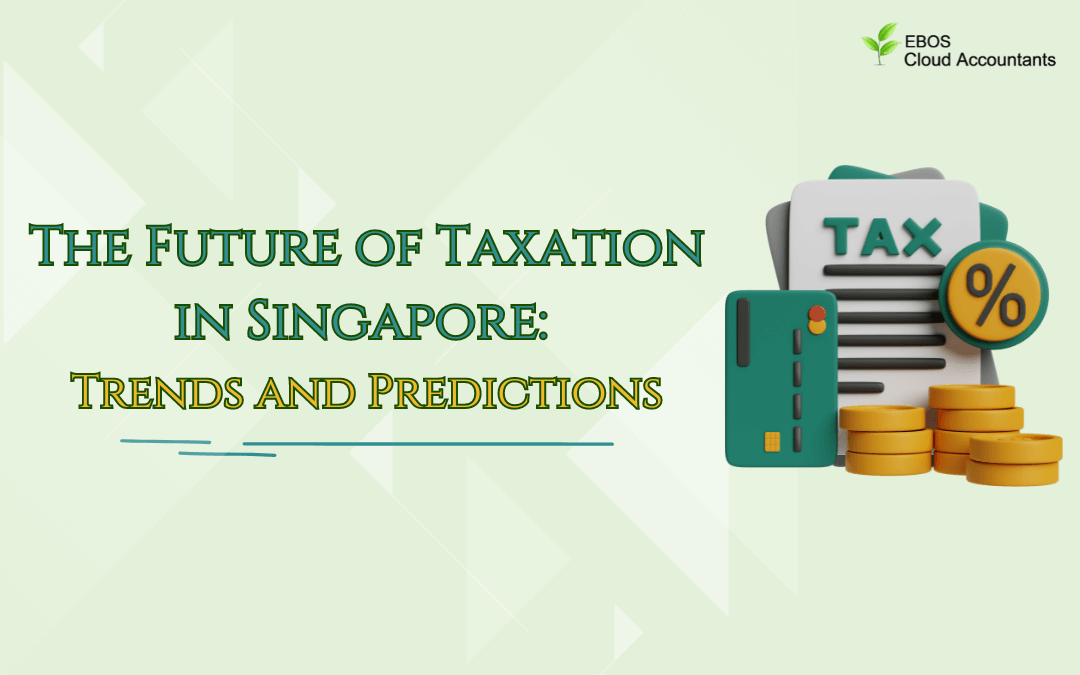Singapore has long been known for its attractive tax policy, which is geared to attract foreign investment and promote company growth. As global economic dynamics alter and new problems emerge, Singapore’s tax laws must adjust to preserve its position as a major global financial hub. This article looks at the future of taxes in Singapore, noting major trends and making projections for the following years.
Embracing Digital Transformation
One of the most significant changes in Singapore’s tax landscape is the transition to digital transformation. The Inland Revenue Authority of Singapore (IRAS) has been in the forefront of using digital technology to improve tax administration and compliance. This involves the use of electronic file systems, electronic invoicing (e-invoicing), and digital payment solutions.
Predictions:
- Enhanced Compliance: The use of blockchain and AI technology will increase tax compliance while decreasing fraud. Blockchain may provide a transparent and immutable record of transactions, whilst AI can aid in detecting inconsistencies and potential tax avoidance.
- Real-Time Taxation: With advances in data analytics, real-time taxing may become achievable. Businesses might have their tax bills estimated and cleared in real time, simplifying cash flow management and lowering administrative expenses.
Green Tax Initiatives
As part of its commitment to sustainability and climate change mitigation, Singapore is likely to extend its green tax efforts. The Carbon Pricing Act of 2019, which levies carbon prices on major greenhouse gas polluters, is a step in this direction.
Predictions:
- Increased Carbon Tax Rates: To accomplish its climate ambitions, Singapore is expected to gradually raise carbon tax rates. This will encourage firms to adopt environmentally friendly practices and invest in sustainable technology.
- Incentives for Green Investments: Expect to see greater tax breaks to encourage firms to invest in renewable energy, energy efficiency projects, and other environmentally friendly activities. This might include tax breaks, refunds, or credits for investments in environmentally friendly technologies.
International Tax Cooperation and Compliance
With worldwide initiatives such as the OECD’s Base Erosion and Profit Shifting (BEPS) project and the establishment of the worldwide Minimum Tax, Singapore will continue to align its tax policy with international norms in order to avoid being perceived as a tax haven.
Predictions:
- Adoption of Global Minimum Tax: Singapore is expected to implement the Global certain Tax, which ensures that multinational corporations pay a certain amount of tax regardless of where they operate. This will level the playing field and discourage tax evasion.
- Increased Information Sharing: There will be greater collaboration with foreign tax authorities, resulting in more information exchange and openness. Singapore will most likely cooperate more actively in worldwide tax information exchange agreements to combat tax evasion and avoidance.
Focus on SMEs and Startups
Supporting small and medium-sized firms (SMEs) and startups has long been a top focus for Singapore, given their importance in driving innovation and economic growth.
Predictions:
- Targeted Tax Incentives: Singapore will implement more targeted tax incentives to help SMEs and startups, such as increased deductions for R&D activities, grants for digital transformation, and tax breaks for new businesses.
- Simplified Tax Processes: Tax processes will be reduced even more to lessen the administrative load on small firms. This might include simplified filing methods, less documentation needs, and more readily available tax advising services.
Personal Income Tax Reforms
Personal income tax policies in Singapore are also projected to develop, with a focus on balancing revenue needs with competitiveness and equality.
Predictions:
- Progressive Taxation: To combat income disparity, more equitable taxes may be implemented. Higher incomes may pay higher tax rates, while lower-income groups may receive further assistance and refunds.
- Tax Reliefs for Skills Development: To encourage lifelong learning and skill development, further tax breaks for educational and training costs might be implemented. This is consistent with Singapore’s objective of developing a knowledge-based economy.
Conclusion
Singapore’s taxation system is set to undergo major transition as a result of digital improvements, environmental aims, international collaboration, and encouragement for innovation. As the tax environment changes, companies and people must remain knowledgeable and adaptive. Singapore’s proactive approach to tax policy, which balances competitiveness with global norms and social equality, will ensure its position as a major financial hub in the changing global economy.
Contact EBOS Cloud Accountants today for assistance in determining which cloud accounting software is best for your business!







